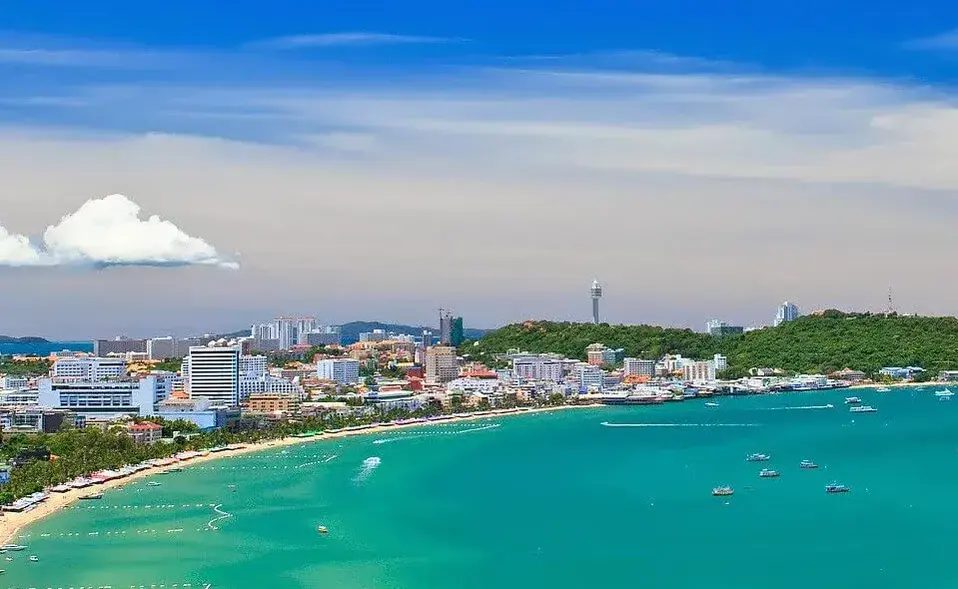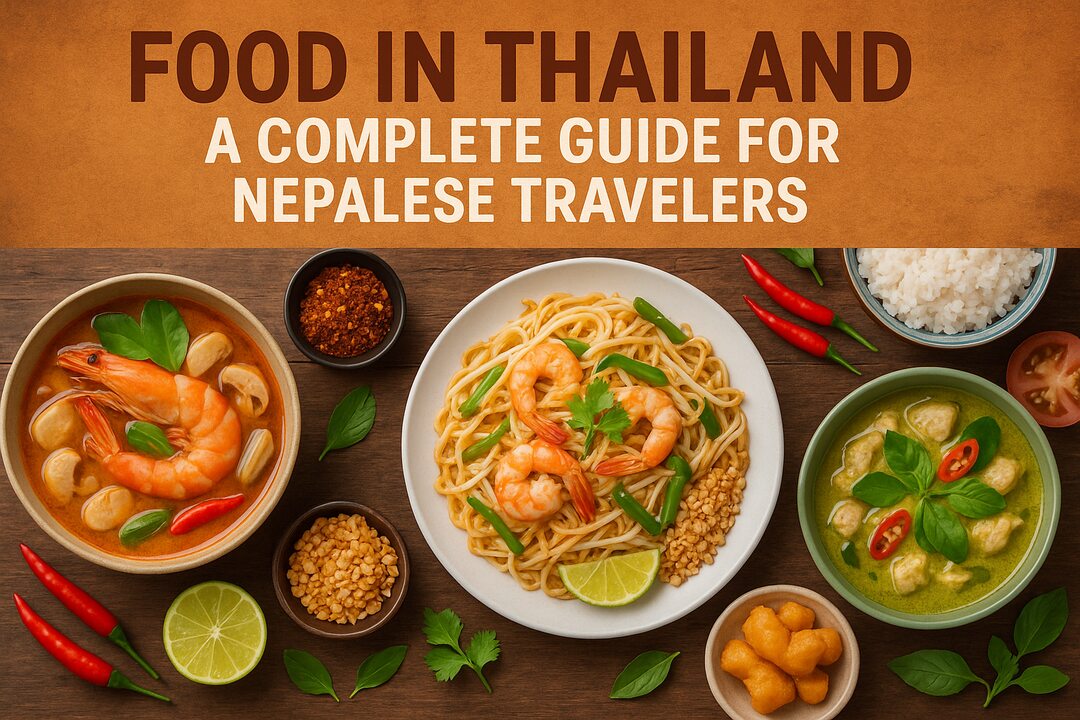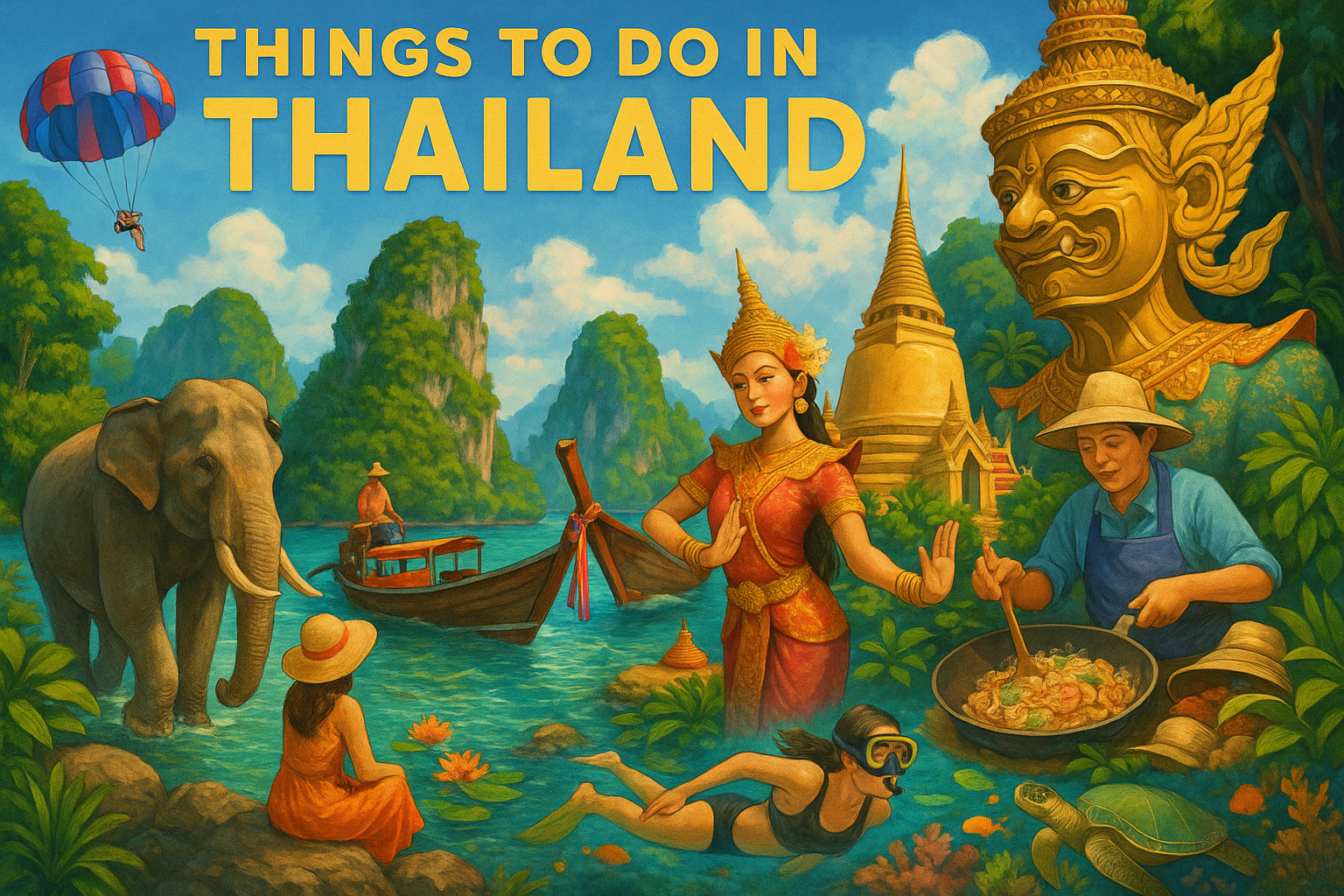Is It Safe to Travel in Thailand Now?

Yes, it is definitely safe to travel to Thailand now. Despite the initial shock following the recent earthquake in neighboring Myanmar, Thailand has quickly reassured both its citizens and the global travel community that it is well-prepared, resilient, and safe. Emergency systems responded swiftly, inspections were thorough, and the country’s most cherished tourist spots remain untouched and fully operational. Travelers can continue to experience the charm and beauty with confidence through Thailand Tours.

Every country faces challenges, but how it handles those moments defines its reliability. Thailand has proven once again that it can weather unexpected events with poise. From safety audits in Bangkok skyscrapers to clear skies over Phuket’s beaches, the Kingdom is as inviting as ever. Thousands of tourists are arriving daily, and they’re being welcomed with the same warmth and joy that Thailand is known for.
Table of Contents
Whether you’re heading for a romantic honeymoon, a solo spiritual journey, or a fun family getaway, Thailand is safe and it’s thriving. Let’s explore the details to help you understand why your travel plans are not only secure but likely to be even more memorable now.
Travel with confidence. Travel with Gomayu and explore our Thailand Packages.

Thailand is a country that never ceases to amaze. From the tropical beaches of the south to the cultural treasures of the north, it remains one of the top destinations for travelers worldwide. However, in light of the recent 7.7-magnitude earthquake in neighboring Myanmar, many travelers are pausing to ask an important question: Is it safe to travel in Thailand now? This guide provides a detailed, human-centered response to that question rooted in facts, recent updates, and safety tips to help you make an informed decision and clear that Thailand is safe.
What Happened in Thailand Recently?
Overview of the Myanmar Earthquake

On March 28, 2025, Myanmar was struck by a powerful 7.7 magnitude earthquake. The quake, one of the largest the region has seen in years, originated in central Myanmar’s Sagaing region and caused major structural damage and casualties within its borders. Due to the proximity and the strength of the quake, tremors extended across the region including into northern and central Thailand.
How the Earthquake Affected Thailand

While Thailand wasn’t at the epicenter, the impact was still felt. Bangkok experienced notable tremors that led to evacuations of several buildings. The most tragic event was the collapse of a 33-story under-construction tower in the Chatuchak district, which claimed dozens of lives and injured many. The incident triggered an immediate nationwide safety review of high-rise structures and construction sites.
The public response was immediate and emotional. Videos circulated online of office workers pouring into the streets, students being ushered out of buildings, and emergency vehicles lining the roads. News coverage helped calm panic while highlighting rescue efforts.
Meanwhile, in northern provinces like Chiang Rai and Mae Hong Son, minor quakes were reported but caused minimal structural damage. However, residents in these areas did feel the ground shake, prompting temporary closures of schools and government offices for building safety checks.
Thai seismologists confirmed that the tremors were aftershocks traveling through fault lines that occasionally affect Southeast Asia. The Meteorological Department was quick to clarify that there was no tsunami risk, helping to ease concerns among coastal communities.
Key Areas That Were Impacted

Out of Thailand’s 77 provinces, 63 experienced some level of tremor. That said, the most affected locations were limited to central and northern Thailand. The southern region including key tourist destinations such as Phuket, Krabi, Koh Samui, and Phang Nga remained completely unaffected. Most hotels, resorts, and airports in these regions reported business as usual, providing peace of mind for tourists.
Out of Thailand’s 77 provinces, 63 experienced some level of tremor. That said, the most affected locations were limited to central and northern Thailand. The southern region, including key tourist destinations such as Phuket, Krabi, Koh Samui, and Phang Nga, remained completely unaffected. Most hotels, resorts, and airports in these regions reported business as usual, providing peace of mind for tourists.
Is It Safe to Travel in Thailand Now?
Safety in Major Tourist Cities
If you’re still asking, is it safe to travel in Thailand now, here’s the latest: major tourist cities are operating normally. Whether you’re heading to Chiang Mai for its temples, to Bangkok for its nightlife, or to Phuket for its sunsets, these destinations are stable, safe, and open to international travelers.
Authorities in Bangkok acted fast by conducting structural inspections on skyscrapers, hotels, malls, and public transportation lines. The Tourism Authority of Thailand (TAT) released public statements affirming that popular attractions and facilities remain safe. Local tourism boards across the country are also actively keeping tourists informed and reassured.
Areas to Avoid (If Any) during Thailand Tour

- Construction zones in Bangkok should be avoided unless verified safe.
- Northern border regions adjacent to Myanmar may experience occasional mild tremors, so exercise caution when visiting remote or mountainous areas.
- Travelers are encouraged to avoid older buildings that haven’t received recent inspections.
These measures are primarily precautionary and do not restrict travel. So, when are exploring if is it safe to travel in Thailand now, let’s know the locals opinion.
What Local Authorities Are Saying

The Thai government, emergency services, and tourism authorities have emphasized that the country is fully operational. Bangkok Metropolitan Administration has increased safety compliance checks, particularly in high-rise structures. TAT continues to promote tourism, with updated safety briefings and assistance hotlines for tourists.
The message from Thailand’s tourism authorities is clear: the country is safe, ready, and more committed than ever to offering travelers a secure and fulfilling experience.
Infrastructure, Healthcare & Emergency Support
How Well Is Thailand Handling the Crisis?
Thailand’s emergency response post-quake has been globally praised. Within hours of the event, urban rescue units, fire services, and military aid were mobilized. BTS and MRT services in Bangkok were paused for rapid inspections and resumed after green lights from structural engineers. All major systems were cleared within 24 hours.
Authorities issued immediate advisories, established emergency shelters, and launched a public information campaign about earthquake preparedness. Local officials also held press conferences to keep the public and international communities informed in real time, reinforcing transparency and trust.
In addition, hotels and tourism operators received fresh safety protocols to follow, including evacuation drill guidance, emergency communication practices, and designated safety zones within properties. For travelers, this meant greater peace of mind knowing that everyone, from airport staff to hotel receptionists, was trained to respond calmly and effectively.
Medical Facilities Available for Tourists during Thailand Tour

Main question should be Is there any emergency facilities not Is it safe to travel in Thailand now? if you’re already planning to visit. Thailand is renowned for its top-tier healthcare facilities, making it a medical tourism hub. Tourists can rely on clean, well-equipped hospitals with:
- Multilingual support teams
- Rapid admission for emergencies
- Dedicated tourist assistance desks
- Private and semi-private patient rooms with international standards
Whether you’re in bustling Bangkok or relaxing in coastal towns like Hua Hin or Phuket, you’re never far from a high-quality hospital or clinic. Many hospitals also partner with travel insurance providers, making billing and treatment coordination smooth for international patients.
For instance, a traveler recently admitted for a minor injury during a sightseeing tour in Chiang Mai was treated swiftly at Bangkok Hospital Chiang Mai and discharged the same day, praising the efficiency and care. Stories like these reinforce that even if the unexpected happens, you’re in good hands.
Thailand also maintains an excellent network of pharmacies, most of which carry international brands and English-speaking pharmacists.
Emergency Hotlines and Support for Foreigners
- Tourist Police Hotline: 1155 (24/7 English support)
- Medical Emergency Services: 1669
- Fire & Rescue: 199
- Foreign Embassy Support for each country is also on alert.
- Gomayu Emergency Helpdesk: 24/7 customer support line [Insert Number]
We also recommend travelers download the “Thai 1122” app or use LINE to contact local services if needed. Gomayu clients can rely on direct WhatsApp or Viber channels for instant help in emergencies.
- Tourist Police Hotline: 1155 (24/7 English support)
- Medical Emergency Services: 1669
- Fire & Rescue: 199
- Foreign Embassy Support for each country is also on alert.
- Gomayu Emergency Helpdesk: 24/7 customer support line [Insert Number]
What’s the Situation at Tourist Spots?
Status of Beaches, Islands, and Resorts
Tourism in southern Thailand is flourishing. Travelers have continued to enjoy their holidays uninterrupted. Some of the top beach destinations currently welcoming tourists:
- Phuket: Crystal-clear waters, beach resorts, and nightlife are all open.
- Krabi & Railay Beach: Popular for cliff climbing, boat tours, and island hopping.
- Koh Samui: A top honeymoon and wellness retreat spot with luxury resorts.
Hotels in these areas have adopted heightened safety and sanitation protocols and many offer flexible rescheduling and extended cancellation policies.
Any Travel Restrictions or Closures?
There are no enforced travel bans or border restrictions within Thailand. Airports, bus terminals, ferry ports, and interprovincial train lines are functioning smoothly.
The only advisory in place is to avoid construction zones in certain parts of Bangkok until further notice from local authorities.
Crowd Levels and Tourist Movement
After a brief slowdown in the immediate aftermath of the earthquake, the number of incoming tourists has quickly returned to normal. Some travelers are even enjoying additional perks such as discounts and quieter resorts. If you’re looking for a less crowded, more relaxed experience, now might be the ideal time to go.
Are Flights and Transportation Operating Normally?
Domestic & International Flight Status
Thailand’s air travel infrastructure remains unaffected. Flights into and out of Bangkok, Phuket, Chiang Mai, and Krabi are operating per schedule. Airlines continue to offer full services, and some are offering flexible booking policies to increase traveler confidence.
Local Transit and Intercity Travel
Thailand’s public transport system, including the BTS, MRT, and regional train services, are fully operational. Roads are clear, highways have passed inspections, and there are no reported disruptions in bus or van services across provinces.
Travelers can confidently use Grab, Bolt, and other local ride-sharing services, as well as rental car agencies and tourist taxis.
Safety Protocols for Travelers
- Avoid walking near active construction sites.
- Pay attention to hotel safety notices.
- Register with your country’s embassy.
- Keep your travel documents and a power bank on hand.
- Follow Gomayu’s safety briefings upon arrival.
Should You Postpone or Go Ahead With Your Trip?

Travelers around the world often hesitate when unexpected events like earthquakes occur, even in neighboring regions. So it’s completely natural to ask yourself whether this is the right time to visit Thailand. But based on current conditions and traveler feedback, the answer is clear: yes, it’s a great time to explore Thailand, provided you take some basic precautions.
Who Should Reconsider Travel Right Now?

While Thailand is safe overall, a few traveler profiles may want to delay:
- Individuals with high sensitivity to tremors or anxiety, who might feel uneasy during their stay, especially in high-rise accommodations.
- Elderly travelers or those with health conditions who may prefer destinations where no recent seismic activity has occurred.
- Tourists planning visits to remote areas along the Thai-Myanmar border, where aftershocks could still be faintly felt or where infrastructure checks may still be underway.
Safe Travel Tips If You’re Going
For those moving forward with their Thailand travel plans, which we strongly encourage here are some expert tips to stay safe and confident as Thailand is safe definitely:
- Confirm hotel safety records: Choose accommodations that have passed structural inspections, especially in Bangkok.
- Travel with a trusted agency: Booking with Gomayu ensures you’re always informed, supported, and safe throughout your journey.
- Carry emergency contact numbers: Save important hotlines on your phone and keep printed copies with your passport.
- Choose destinations that are unaffected: Islands like Phuket, Koh Samui, and Krabi were entirely untouched by the earthquake.
- Stay connected: Use mobile apps like Thai 1122 or LINE to access real-time emergency information.
Real-Life Example:
Ravi and Sneha, a couple from Nepal, had planned their honeymoon in Thailand right around the time of the earthquake. After speaking with Gomayu’s team, they proceeded with their trip to Krabi and Koh Phi Phi. Upon return, they shared glowing feedback, stating, “We felt absolutely good and Thailand is safe the entire time. Our resort was extra cautious, and the beaches were serene with fewer tourists. It turned out to be more peaceful than we ever imagined.”
Travel Insurance & Cancellation Policies
Now more than ever, travel insurance is essential, not just for peace of mind but for real protection. Most comprehensive travel insurance plans cover events like earthquakes, and policies can help you recoup costs if there’s a genuine need to cancel, delay, or interrupt your trip.
Look for plans that include:
- Trip interruption and delay coverage in case of transport issues or emergencies.
- Medical evacuation and hospitalization in case of injury or illness during your trip.
- Trip cancellation refund benefits for circumstances involving natural disasters.
If you’re unsure which plan is best for you, Gomayu can guide you through trusted partners that offer flexible and tourist-friendly insurance tailored to international travel. This way, your safety and budget are protected, no matter what.
Many insurance companies now include natural disaster coverage. Look for:
- Trip interruption/delay benefits
- Medical evacuation and hospitalization
- Refund protection in case of itinerary disruption
Gomayu helps clients select and understand policies tailored to travel during uncertain times.
Gomayu’s Take: Our Thailand Tours Are Safe and Ongoing
How We’re Monitoring the Situation
At Gomayu, safety is not just a promise, it’s a system. Our Thailand-based team works closely with local ground handlers, hotel partners, and transportation providers to receive daily condition reports. We monitor regional updates from the Tourism Authority of Thailand (TAT), Bangkok Metropolitan Administration, and international advisories to ensure that our packages remain enjoyable and Thailand is safe.
Beyond passive monitoring, we proactively reach out to our travelers currently on the ground to receive real-time feedback about on-site safety, comfort, and service quality. This loop allows us to act fast and provide timely adjustments if needed.
Extra Measures Taken for Customer Safety
We’ve rolled out multiple new features for all upcoming tours to Thailand:
- Pre-travel health and safety webinars for all Gomayu travelers
- Verification of hotel safety compliance certificates post-earthquake
- On-ground travel concierge team to assist at airports and major hubs
- Crisis-ready communication channels via WhatsApp, Viber, and Messenger
- Instant alerts system to notify travelers of safety or weather updates
Our tour leaders are also trained in basic first-aid and emergency evacuation procedures, ensuring peace of mind no matter where your journey takes you.
Why Booking Thailand tour Through Gomayu ?
Choosing Gomayu means choosing a safety-first mindset with a deeply personalized approach. From the moment you express interest in traveling to Thailand, we tailor your experience to your comfort level, recommending routes, destinations, and activities that align with your safety preferences.
We also work with verified local vendors who understand international safety standards, and we never cut corners when it comes to your wellbeing. Our dedicated customer support team is available around the clock to assist you before, during, and after your trip.
One traveler recently shared:
“When the earthquake news broke, I was nervous about continuing with our trip. Gomayu not only reassured us but provided daily updates. Our experience in Phuket was relaxing and stress-free, honestly, one of the best vacations we’ve had.”
So, if you’re still asking, Is It safe to travel in Thailand now, the answer is yes, and it’s even safer with Gomayu.
Frequently Asked Questions (FAQs)
1. Is it safe to travel in Thailand now for a vacation or honeymoon?
Yes, tourist regions are unaffected and operating normally.
2. Is Bangkok safe after the earthquake?
Yes, inspections have been carried out across most buildings. Avoid construction areas.
3. Are there airport or airline delays?
No. Air travel remains uninterrupted.
4. Could there be more earthquakes?
Aftershocks are possible but minor. Authorities are monitoring the situation.
5. Can I go to the islands like Koh Samui and Phuket?
Absolutely. These areas were not impacted.
6. What if I need medical help?
World-class hospitals are open and accessible.
7. Does my insurance cover this?
Most providers offer natural disaster protection, double-check before booking.
8. What if something happens during my trip?
Contact Gomayu or local emergency lines. Help will be immediate.
9. Is the nightlife and tourism industry still open?
Yes, fully open. Events, bars, and shows are running as scheduled.
10. How can I stay safe while traveling?
Follow safety tips, stay updated via news or agencies, and travel with a reliable partner like Gomayu.
Final Thoughts
So, is it safe to travel in Thailand now?
Yes. Without a doubt. Thailand has responded with maturity, speed, and care. Your dream trip doesn’t need to be postponed. From its golden temples to turquoise waters, Thailand is ready to be explored.
For more updates, personalized support, or help customizing your itinerary, reach out to our team anytime.












